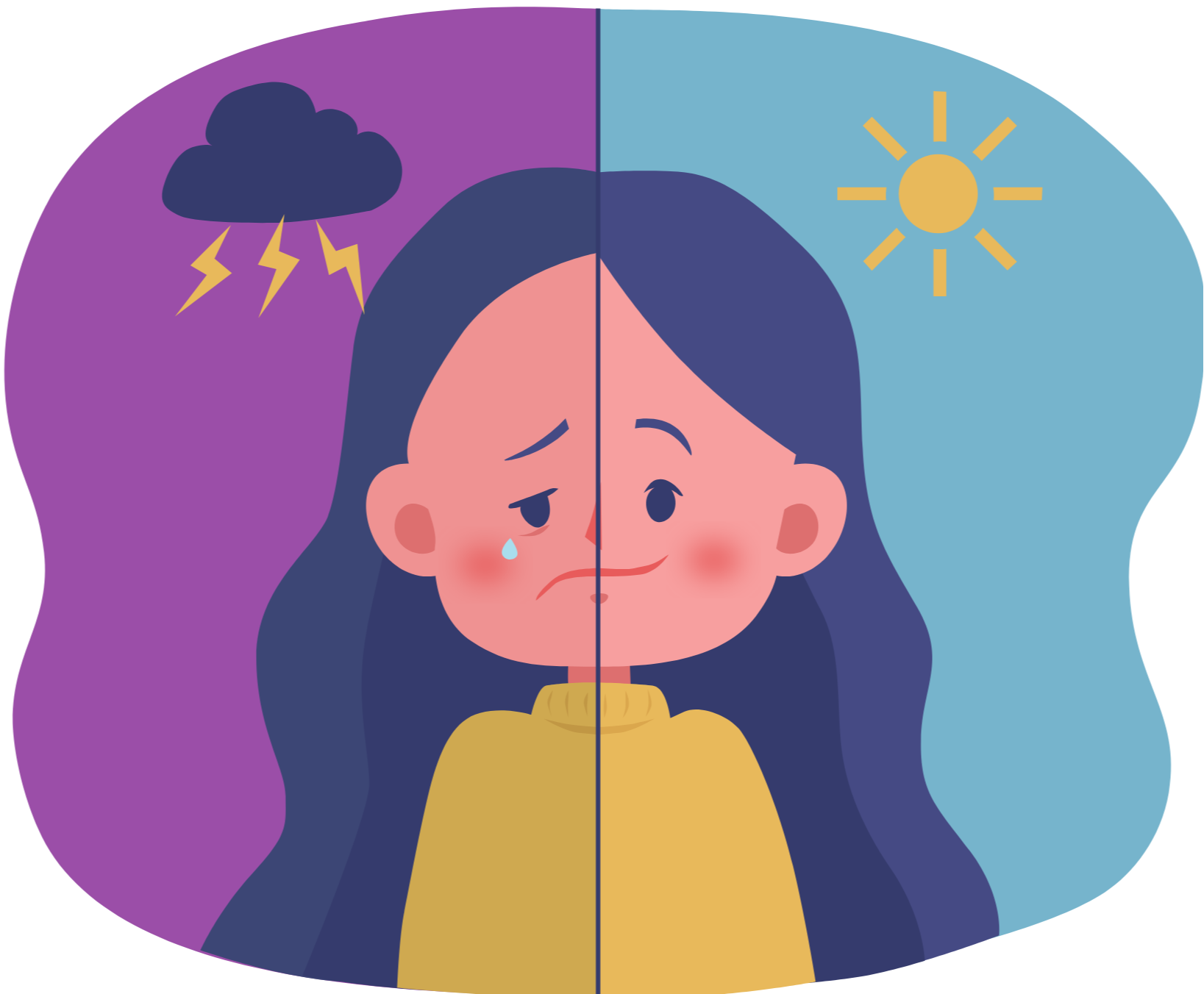Bipolar Disorder

What is Bipolar Disorder?
Bipolar disorder, also known as manic-depressive illness, is a mental health condition characterized by extreme mood swings, including periods of elevated mood (mania) and periods of depression. These mood changes can significantly impact a person's daily life, relationships, and ability to function.
Who's at risk for Bipolar Disorder?
Bipolar disorder can affect people of all ages, genders, and backgrounds. Risk factors for developing bipolar disorder include a family history of mood disorders, the presence of other mental health conditions, and exposure to high levels of stress or traumatic events.
What causes Bipolar Disorder?
The exact cause of bipolar disorder is not fully understood, but it is believed to result from a combination of genetic, environmental, and neurological factors. Research suggests that imbalances in brain chemicals called neurotransmitters may play a role in the development of bipolar disorder.
How does Bipolar Disorder start?
Bipolar disorder typically begins in late adolescence or early adulthood, although it can start in childhood or later in life. The onset of bipolar disorder is often gradual, with symptoms becoming more severe over time.
What are the symptoms of Bipolar Disorder?
Symptoms of bipolar disorder can vary depending on whether an individual is experiencing a manic or depressive episode. During a manic episode, symptoms may include increased energy, racing thoughts, irritability, and impulsive behavior. During a depressive episode, symptoms may include low energy, sadness, hopelessness, and a lack of interest in activities.
How is Bipolar Disorder diagnosed?
Bipolar disorder is diagnosed based on a comprehensive evaluation that includes a review of the individual's medical history, a description of symptoms, and information from friends and family members. A doctor may also use rating scales, questionnaires, or psychological tests to assess the severity of symptoms and rule out other potential causes.
How can Bipolar Disorder be treated?
Treatment for bipolar disorder typically involves a combination of medication, therapy, and support services. Medications such as mood stabilizers, antipsychotics, and antidepressants may be prescribed to help manage symptoms. In addition, therapy, such as cognitive-behavioral therapy (CBT) or family-focused therapy, can help individuals develop coping strategies and improve their overall functioning.
What complications may occur with Bipolar Disorder?
If left untreated, bipolar disorder can lead to complications such as relationship difficulties, poor performance at school or work, substance abuse, and an increased risk of suicide.
How can I prevent Bipolar Disorder?
There is no known way to prevent bipolar disorder. However, early intervention and treatment can help improve outcomes and reduce the severity of symptoms.
Long-term management of Bipolar Disorder
Long-term management of bipolar disorder involves ongoing medication, therapy, and support services. Regular checkups and adjustments to treatment as needed can help individuals with bipolar disorder maintain stability and prevent relapses.
What is recent research saying about Bipolar Disorder?
Recent research on bipolar disorder focuses on understanding the underlying causes, improving treatment options, and identifying new treatment approaches. Studies are exploring the role of genetics, brain function, and environmental factors in the development of bipolar disorder. Additionally, research is being conducted on new medications and therapies to help manage symptoms and improve overall functioning.
Where can I go for more information on Bipolar Disorder?
For more information on bipolar disorder, visit the National Institute of Mental Health (NIMH) website, the Depression and Bipolar Support Alliance (DBSA) website, or contact a local healthcare professional or mental health organization.

